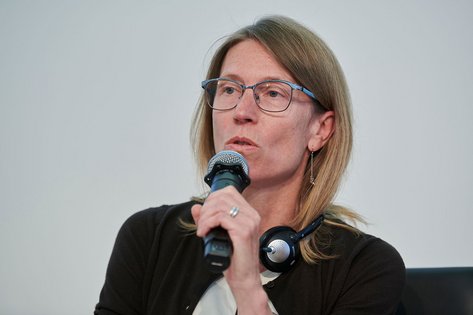 Getty Images/oliver de la haye
Getty Images/oliver de la haye
Climate change acts
like a magnifying glass
ed* Nr. 02/2023 – Chapter 11
The challenges facing social systems are not new. Apart from a few phenomena such as the arrival of tropical pathogens like the Zika or West Nile viruses in Europe, we encounter familiar problems. What changes is the scale. Climate change magnifies the risks as if through a magnifying glass – infectious diseases and allergies, heat and UV radiation, psychological stress. And it exacerbates the structural problems caused by overuse, underuse and misuse in the systems. This applies to unnecessary, resource-intensive treatments in hospitals or prescriptions of medicinal products that are inappropriate for therapy or just as much to the still insufficient investments in prevention. Targeted, evidence-based education, prevention and care services can help to mitigate or avoid the health consequences of climate change. In view of the growing dimension of risks due to climate change, the OECD calls for a fundamental change of direction and more money for prevention.

Three per cent of health expenditure goes into prevention. That is too little. Social systems need to change fundamentally here and provide the necessary investment resources.
Investments in prevention pay off. A study by the International Social Security Association (ISSA)1, which included data from more than 300 companies in 15 countries, showed that the return on investment of one euro in occupational health and safety is 2.2 euros. But it is not just a question of money. The restructuring of the economy and society, as well as the use of new, “green” technologies, also creates new challenges for health and safety at work. New fields are opening up in biogas, photovoltaics, wind turbines, electromobility and hydrogen. In the shift to non-fossil raw materials and low-carbon production processes, risks and dangers for many jobs need to be reassessed. More research is needed here to assess the risks and develop effective prevention measures. At this point, the European Commission is also called upon.
On the occasion of the German Social Insurance (DSV) expert conference on 27 June 2023, Frank Siebern-Thomas, responsible for Fair Green and Digital Transition and Research in the Directorate-General for Employment, Social Affairs and Inclusion stood up for the European Commission. With regard to the research funding programme Horizon Europe, he pointed to lively research activities funded through the programme. But research alone is not enough. There is a need for networks and a systematic exchange of best practices. As an example, he highlighted the EU’s mission for climate-neutral and smart cities, which supports one hundred European cities, including nine from Germany, to become climate-neutral by 2030. It is the task of cities to draw up an overall plan for climate neutrality, including corresponding investment plans for sectors such as energy, buildings, waste management, transport and green urban planning. The process involves citizens, research institutions and the private sector. A role model for the health and social care sector? One thing is certain: the transformation towards climate neutrality requires the cooperation of all those involved, a coordinated approach and communication that ensures that people are involved.

